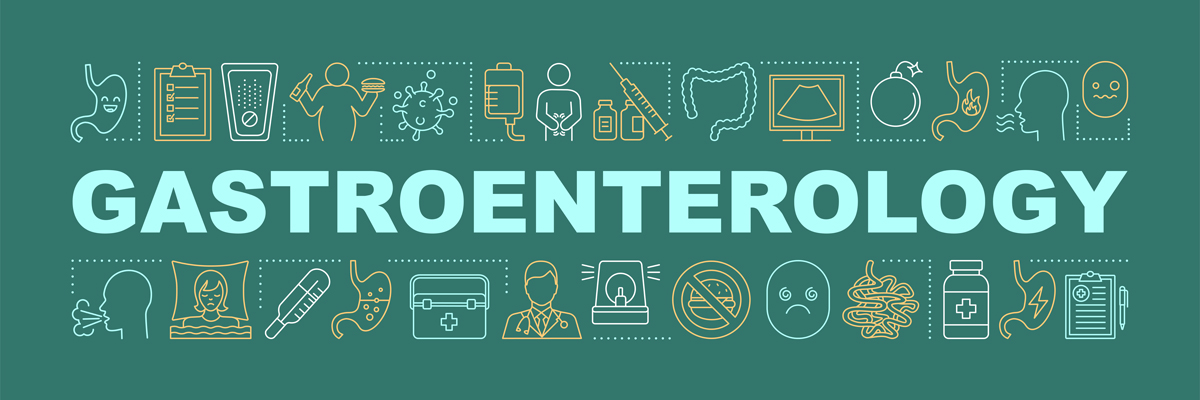
Pediatric Gastroenterology & Nutrition Residency Program
Welcome to the Pediatric Gastroenterology and Nutrition Residency Program at the University of Alberta.
10 Full-Time Pediatric Gastroenterologists
Our Division has 10 full-time pediatric gastroenterologists of which two are pediatric hepatologists.
Wealth of Clinical Exposures and Exceptional Learning Opportunities
We are also the Western Canadian pediatric liver and multivisceral transplant centre, with a busy consult/luminal GI service.
Large Referral Base
Our referral base includes northern and central Alberta, the Northwest Territories, Saskatchewan and northeast British Columbia serving a population base of over two million.
Interview/CaRMS Specific Information
Interviews will be held via Zoom, and will include introductions and interviews with the Program Director, Divisional Director, and a number of our teaching faculty. These interviews will focus on communication skills, interpersonal skills, level of maturity, empathy and sensitivity. We also aim to have you meet with one of our current trainees to ask questions about our program and her experience so far.
Visit CaRMS.ca for more information
Contact Us
Pediatric Gastroenterology and Nutrition Residency Program
Department of Pediatrics,Division of Gastroenterology and Nutrition,
Edmonton Clinic Health Academy, University of Alberta
3rd Floor, 11405 – 87 Avenue
Dr. Jason Silverman
Program Director, Pediatric Gastroenterology
Jessica Tucker
Medical Education Program Coordinator
Email: pedsgas@ualberta.ca
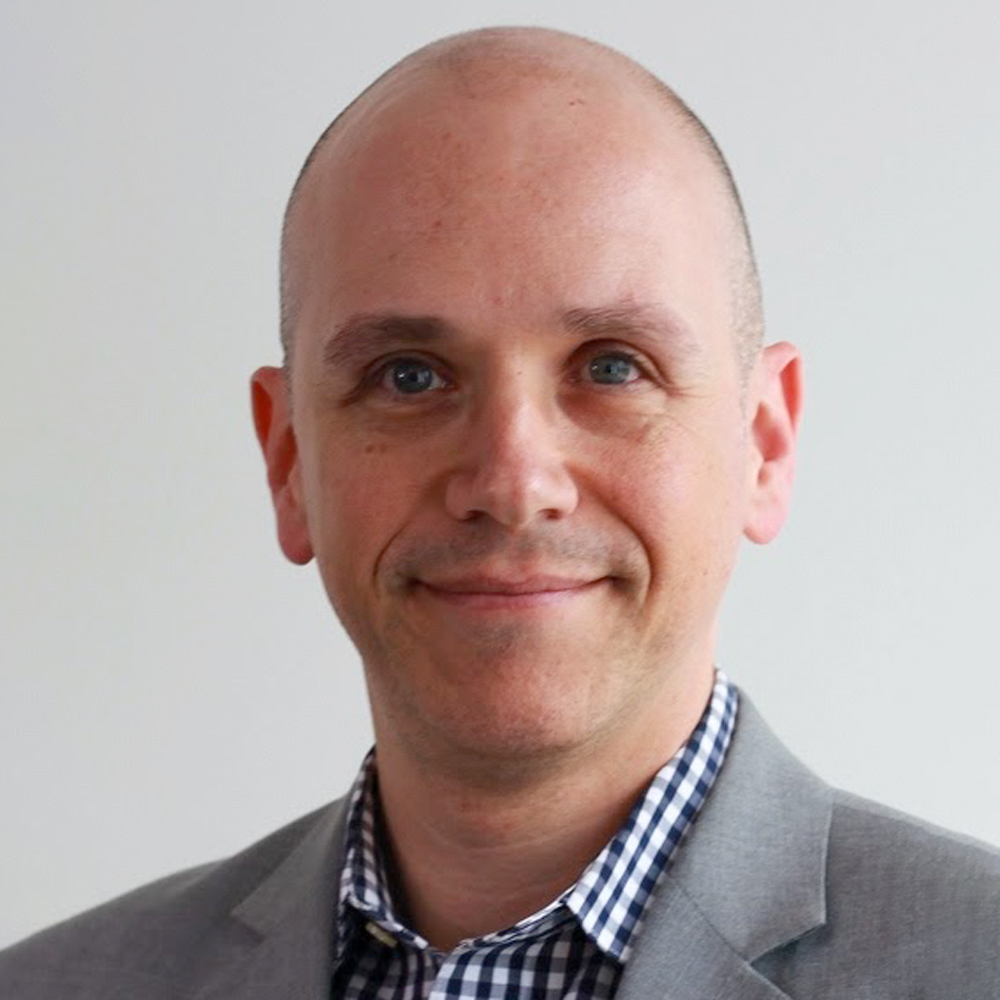
Dr. Jason Silverman
Program Director
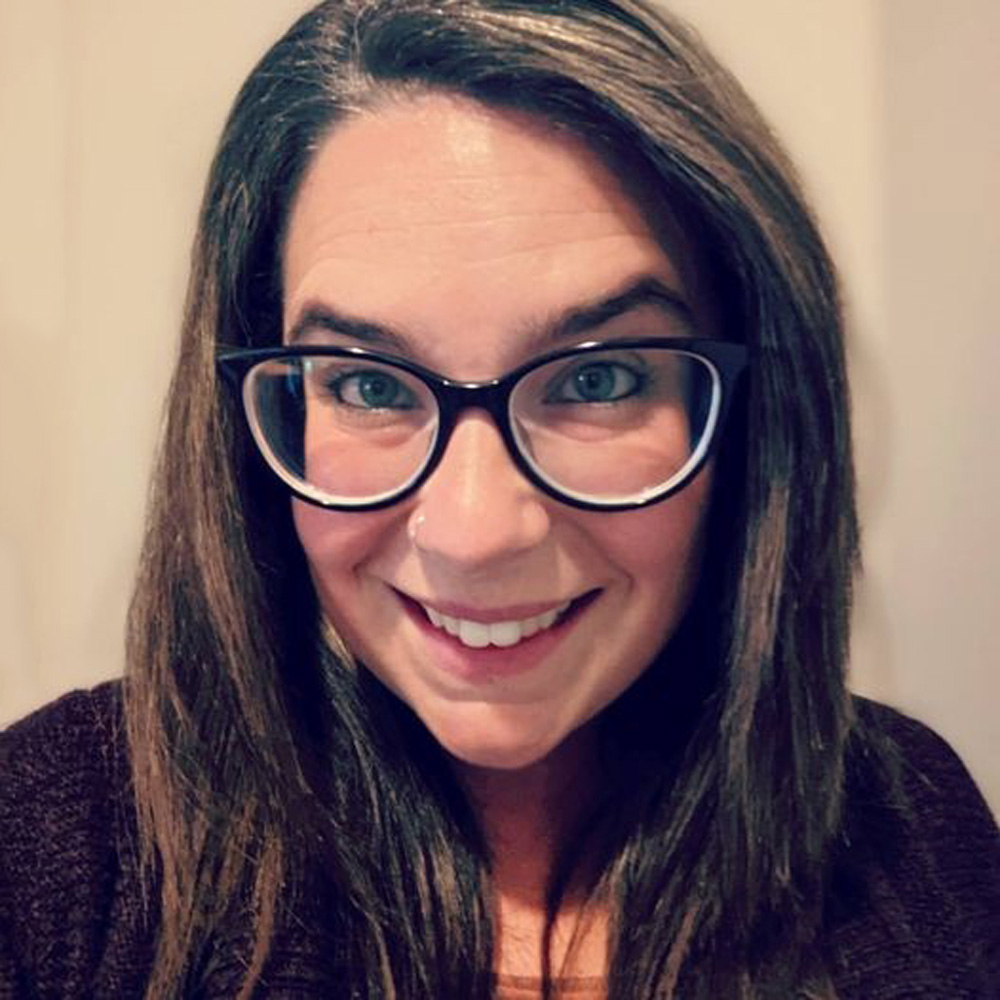
Jessica Tucker
Medical Education Program Coordinator
Welcome to the Pediatric Gastroenterology and Nutrition Program!
Our Division has 10 full-time pediatric gastroenterologists of which two are pediatric hepatologists. We have a diverse range of clinical interests including inflammatory bowel disease, intestinal rehabilitation, celiac disease, eosinophilic esophagitis, functional gastrointestinal disorders, motility, as well as chronic and acute liver disease such as biliary atresia and liver failure.
Our referral base includes northern and central Alberta, the Northwest Territories, Saskatchewan and northeast British Columbia serving a population base of over two million. We are also the Western Canadian pediatric liver and multivisceral transplant centre. Our busy consult/luminal GI service provides a wealth of clinical exposures and exceptional learning opportunities.
Along with the strong clinical and procedural training, a wide range of academic activities fulfill our program’s goal to provide the trainee the knowledge and skills with which to become a qualified/competent pediatric gastroenterologist. These include weekly Pediatric GI Rounds, academic teaching sessions, research opportunities and encouragement to attend national and/or international conferences. The options of doing further training in the context of a clinical research fellowship, fellowship in hepatology and transplant, or participation in the Clinician Investigator Program (CIP) are also available.
As of July 2019, our program (along with all GI training programs in Canada) has moved to a Competence By Design structure. For more details regarding this, please refer to the Royal College's "A Resident's Guide".
Thank you for your interest in our program.
Dr. Jason Silverman
Program Director
Our Program
The primary goal of the program is to facilitate the development of physicians as experts in Pediatric Gastroenterology & Nutrition. While this expertise is an essential foundation, it is not sufficient to ensure the provision of excellent clinical care. Therefore, the program is structured to ensure the continuing development of additional skills and attributes associated with outstanding physicians.
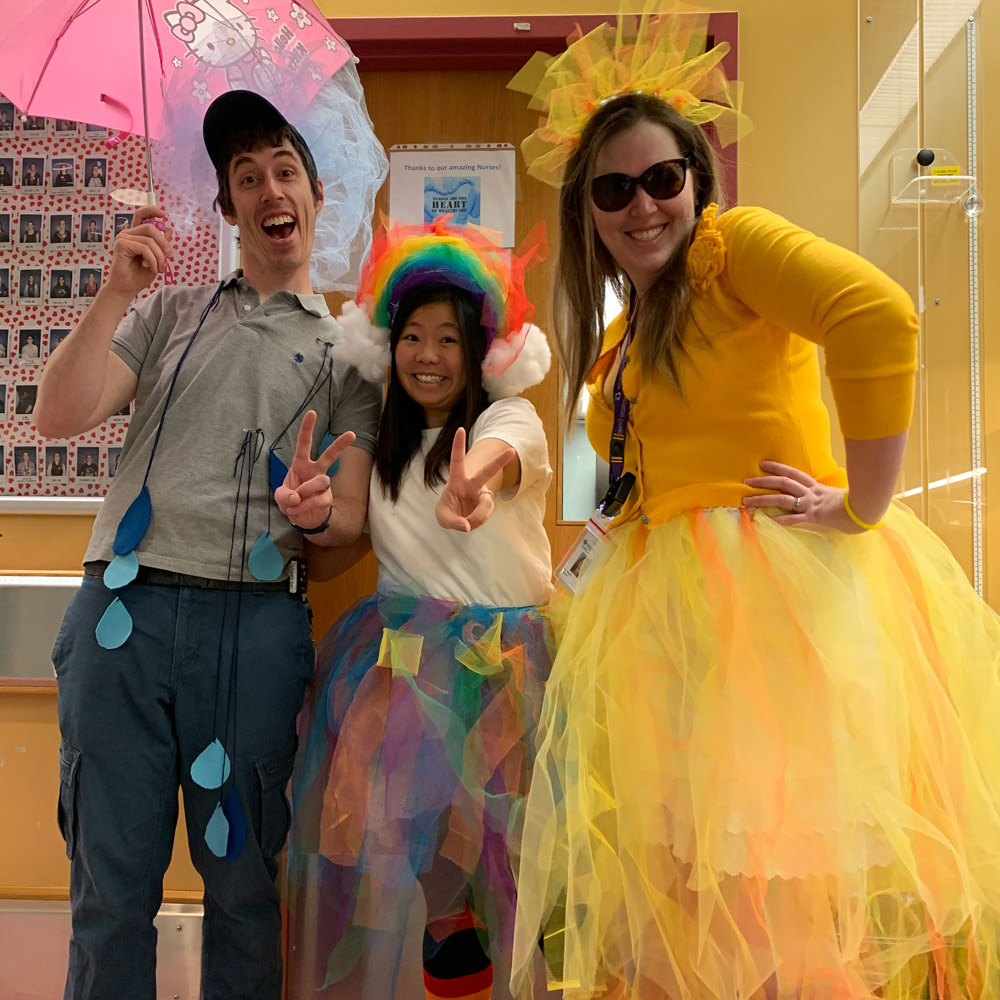
Program Highlights

The Pediatric Gastroenterology Residency at the University of Alberta has been designed to meet the requirements of the Royal College of Physicians and Surgeons of Canada for examination and certification in this subspecialty. The Residency Program will prepare the resident for an independent career involving patient care, education and research.


Our program provides a wide variety of clinical experiences in a multidisciplinary setting. Outpatient clinics include both general gastroenterology and specialty clinics, including:
-
Inflammatory bowel diseases (IBD)
-
Eosinophilic esophagitis
-
Celiac disease
-
Chronic abdominal pain
-
Intestinal failure
-
Transplant (liver and small intestine)
-
Hepatology

Trainees rotate through two distinct inpatient services: Consults/ Luminal GI and Transplant/ Intestinal rehabilitation, covering the breadth of pediatric gastroenterology, hepatology and nutrition, as well as outpatient, elective, and research rotations.

Our division performs a large number (over 1,000) of endoscopic procedures annually, providing excellent opportunities for trainees to become proficient in diagnostic and therapeutic procedures. In addition, our trainees complete a one month adult endoscopy rotation, providing further endoscopy training.

Trainees are provided with four blocks dedicated to scholarly activity. Research skills training including basic methodology, epidemiology and statistics is provided through the Postgraduate Medical Education Office of the University of Alberta. There are extensive opportunities for clinical, translational, basic science and quality improvement projects within our division in collaboration with faculty in other areas.
Residency at a Glance
This residency program is for 2 years. Program length of training does not exceed the Royal College or College of Family Physicians of Canada standard.
The pediatric gastroenterology residency meets certification requirements set by the Royal College of Physicians and Surgeons over the course of 2 years. Trainees intending to pursue an academic career are encouraged to extend this training for a third year in order to pursue more extensive research training, or further subspecialization in hepatology or IBD, subject to obtaining competitive funding.
The components of our 2-year residency program is outlined below. Special interests of the trainee will be taken into consideration and accommodated whenever possible. Each block is 4 weeks in length.
- 11.5 blocks Inpatient Service (Consults, Transplant, Intestinal Failure)
- 4 blocks Outpatient Service
- 4 blocks Research
- 1 block Adult Endoscopy
- 2 weeks (1/2 block) Pathology
- 2 weeks (1/2 block) Nutrition
- 2 weeks (1/2 block) Motility
- 2 blocks Elective
Teaching Hospitals
We are a fully accredited program that follows the guidelines set out by the Royal College of Physicians and Surgeons of Canada.
Stollery Children's Hospital
(Consultation services provided to the Grey Nuns Community Hospital and Royal Alexandra Hospital)
University of Alberta Hospital
(For adult gastroenterology and pathology rotation)
Resident Testimonials
We asked our residents what their highlights of the program are, and one piece of advice for applicants about the interview process. Here is what a few of them had to say:

What are the highlights of the program? Tons of hands-on experience with a wide variety of patient encounters and endoscopy, with an unmatched exposure to transplant patients throughout the whole 2 year fellowship. Working in a combined pediatric and adult hospital has also allowed great collaboration and learning from our adult GI colleagues. Our division is tight-knit and there are so many opportunities to work with each staff member one-on-one. The program also has a great amount of research support, and are willing to support you in any idea or project that you may develop.
Piece of advice to share about the interview process? Everyone is looking for you to succeed. They all want to get to know you better, and learn about the variety of activities you've been involved with! It's all about trying to ensure the right fit, and not about making it a stressful process.

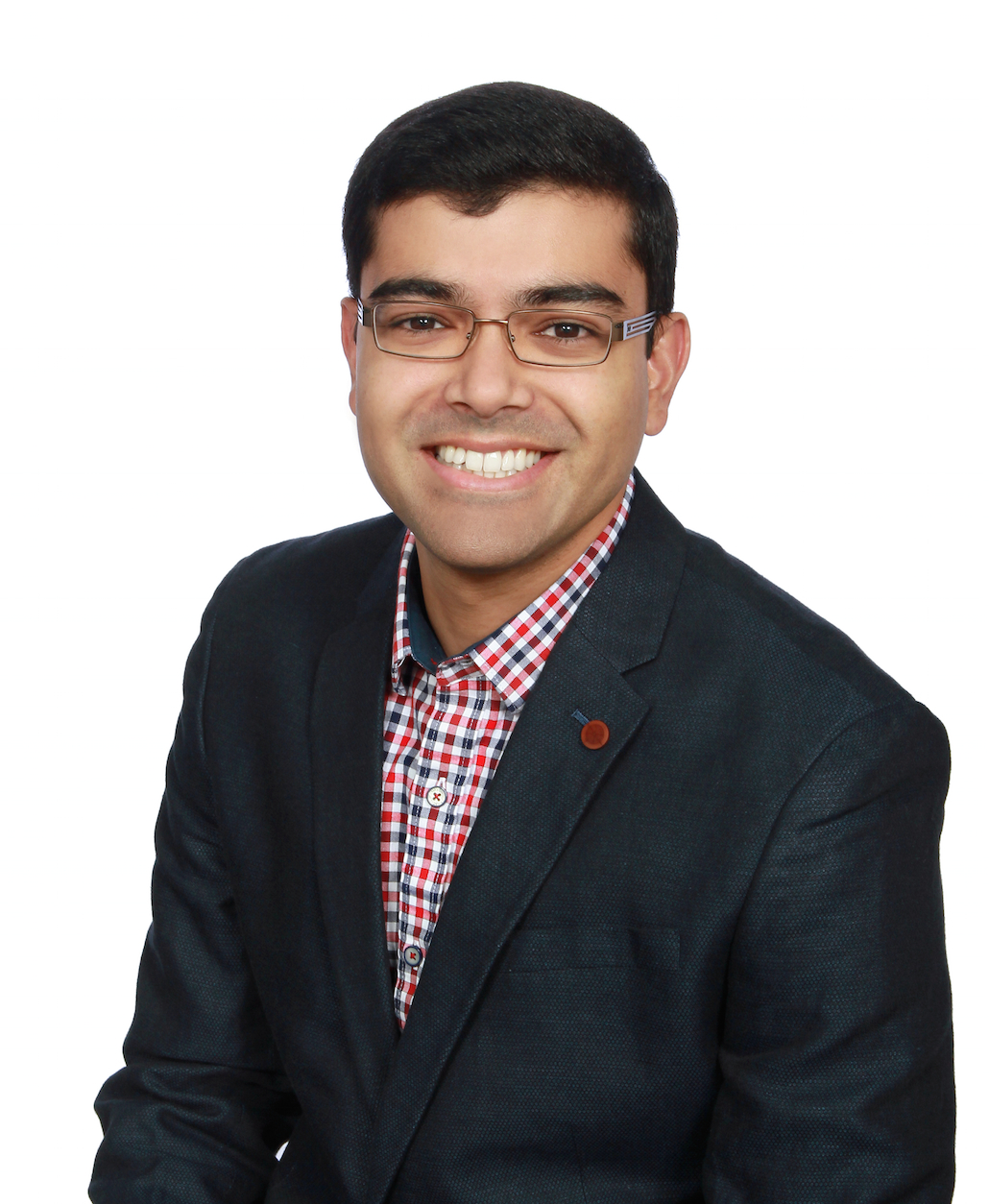
What are the highlights of the Program for you? Outside of the amazing staff, the breadth of our program truly sets us apart. By being a large, quaternary transplant centre and having so few fellows we are exposed to the full spectrum of GI conditions and procedures that is above and beyond any other GI training center in Canada. Trainees also gain various endoscopy skills from foreign body removal, bleeding interventions and PEG tube insertion. In addition, Edmonton has a very large and diverse pediatric surgery and adult GI programs, with whom we work closely to offer a full spectrum of care to our patients (and exposure for trainees).
What is one piece of advice that you want to share with applicants about the interview process? Be yourself! Seriously! The subspecialty match is less about simply matching than it is about finding the right fit for both the program and trainee. Think about what you would like to do in the future, where you would like to live and what you want to get out of a GI training program. Ask any and all questions you may have during the interview and if you've never been here before, come out for a visit and see how you like it!
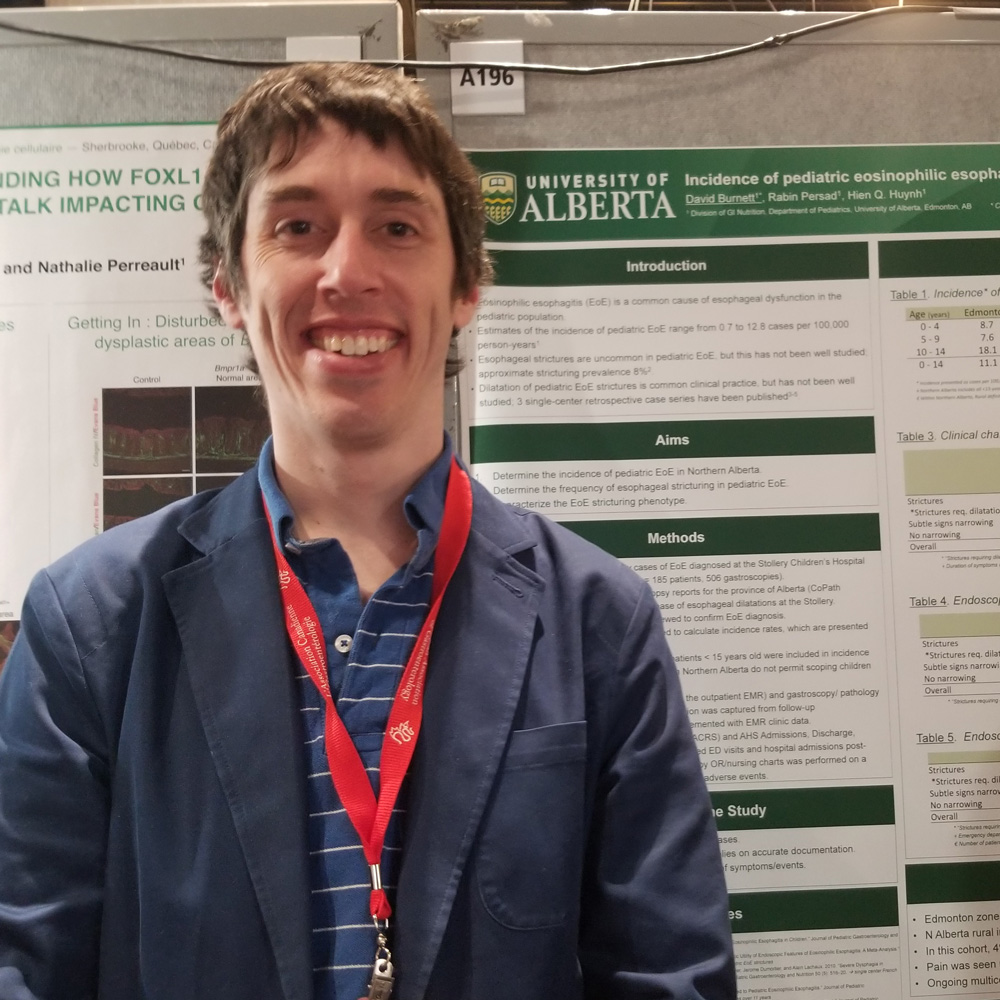
What are the highlights of the program for you? Having done my gen peds training elsewhere, it was lovely to find the team here so welcoming! They've all done a great job making me feel at home. What I like best about the program, though, is the size: Edmonton is a transplant center, so sees some of the sickest kids (great for training), but the number of learners isn't huge. That way, there's isn't a line of people competing for all the procedures/learning experience. I've found I'll end up scoping patients I've seen in clinic (and visa versa) just by chance.
What is one piece of advice that you want to share with applicants about the interview process? Think about how to be your "best self", as you would for any interview... but also think about what you want out of a program! Big vs. Small? Transplant vs no? Do you want to live in a specific city? Or work with a specific person?... lots to consider!